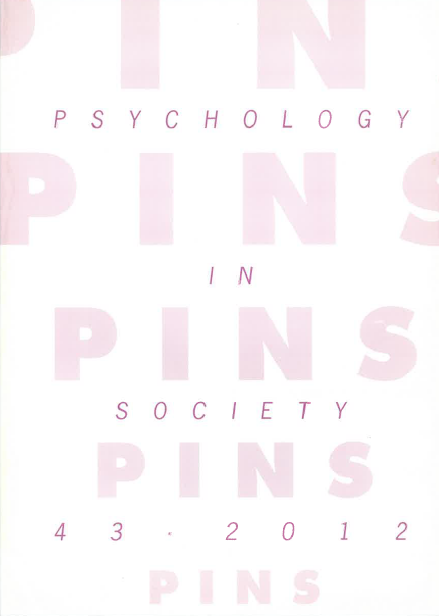ARGUING WITH THE INCEST TABOO? THE CASE OF “DISTORTED COGNITIONS” ABOUT CHILD SEXUALITY
DOI:
https://doi.org/10.17159//2309-8708/2012/n43a1Keywords:
cognitive distortions, child sex offenders, childhood sexuality, incest tabooAbstract
This paper seeks to open up critical reflection on the notion of “cognitive distortion” (CD), as applied to child sex offenders, to a broader anthropological account of children’s sexual agency, namely the arguable revitalisation and extension of incest taboos through the post-1970s rubric of child sexual abuse. Sixteen scales that purport to measure CD (1984-2009) are listed, and their gist briefly appreciated against this interpretative background. Pitting social structure against the deconstructive and disloyal crime of perversion, the pronouncement of CD shows a deep complicity to the moral status quo, namely the faithful recitation and procedural accreditation of essentially regulatory rubrics, fixtures, and truisms (“sexuality”, “sexual trauma”, “harm”, “consent”). It thus paraphrases the anthropologically expected collapse of nuance between immoral and illogical ideas at the site of social taboos, especially taboos’ contemporary predicament of ever more argumentative perverts and ever more decontextualised, and thus erratic, scientific probing. In the end, the perverts are those who, in all nuances of the expression, “don’t get it.” Circumscribing the “rationalisations, distortions, and blame shifting” of the paraphile remains the - increasingly awkward and panicked - occasion for entrenching society’s.
Downloads
Downloads
Published
How to Cite
Issue
Section
License
This journal is an open access journal, and the authors' and journal should be properly acknowledged, when works are cited.
Authors may use the publishers version for teaching purposes, in books, theses, dissertations, conferences and conference papers.
A copy of the authors’ publishers version may also be hosted on the following websites:
- Non-commercial personal homepage or blog.
- Institutional webpage.
- Authors Institutional Repository.
The following notice should accompany such a posting on the website: “This is an electronic version of an article published in PINS, Volume XXX, number XXX, pages XXX–XXX”, DOI. Authors should also supply a hyperlink to the original paper or indicate where the original paper (http://www.journals.ac.za/index.php/pins) may be found.
Authors publishers version, affiliated with the Stellenbosch University will be automatically deposited in the University’s’ Institutional Repository SUNScholar.
Articles as a whole, may not be re-published with another journal.
The copyright of the article(s) lies with the author(s).
The copyright of the journal lies with PINS-psychology in Society.
The following license applies:
Attribution CC BY-NC-ND 4.0 - https://creativecommons.org/licenses/by-nc-nd/4.0/

